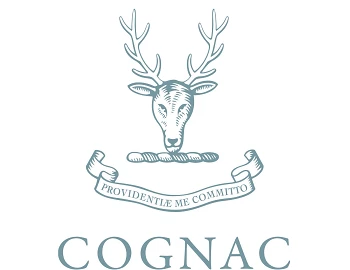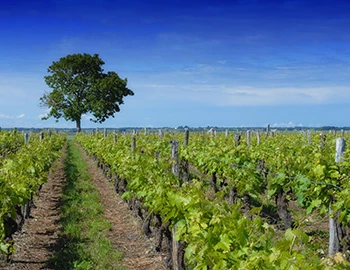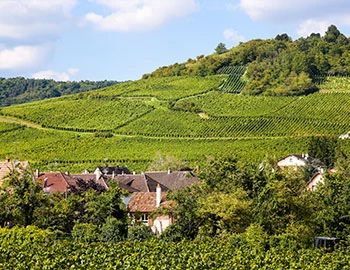
Cognac Park Cigar blend (XO)
Vieille Fine Champagne, 200 ml

| Grape variety: | Ugni blanche, Colombard, Folle blanche |
| Producer: | Park |
| Origin: | France / Cognac |
| Other bottle sizes: |
Description
The Fine Champagne Cognac appellation means that the blend comes from the two best areas of the Cognac region, the Grande and the Petite Champagne, with at least 50% of the grapes coming from the Grande Champagne. Since strong tobacco aromas can overload a fine cognac, this distillate ensures that the aroma and taste are fuller and richer. It starts with a combination of light and musky scents of honey, saffron and gingerbread mixed with fresh cranberries and vanilla. On the palate, these aromas combine to create a full-bodied cognac with a harmonious finish, subtle surprises and a long aftertaste. The Cigar Blend is the perfect companion with a good cigar.
Attributes
| Origin: | France / Cognac |
| Grape variety: | Ugni blanche, Colombard, Folle blanche |
| Volume: | 40.0 % |
Park
For many years Baur au Lac Wines has been Switzerland's exclusive importer of the sumptuous Cognacs created by Dominic Park. The story goes back to the 1990s when Dominic Park decided to leave his job as a wine trader in London to create his own cognac house with the style he wanted. This is summed up by a very clean vision of what cognac should be: insist on the best origins and a very precise distillation and ageing to give a high-class product in a modern, elegant bottle.
The colour of Park cognacs is natural and results from a patient ageing of the eaux-de-vie. No caramel colouring is permitted and no rectification with concentrated tannins. All cognacs undergo a longer ageing than that imposed by law. Even the VS, the simplest cognac, matures for three and half years instead of the required two. The VSOP is aged for eight years instead of four, twice the minimum. As for the XO, Park lets it acquire its fullness over twenty years where nine suffice under the rules. Finally, the eaux-de-vie that go into the Extra, the Vieille Fine Champagne, in the top Cigar Blend, and into the Vieille Grande Champagne aged for forty to sixty years.

Folle blanche
Is undergoing a fascinating renaissance
This rare white grape variety was discovered in the 14th century, and grows mostly on the French Atlantic coast. It bears many interesting nicknames, with translations such as "tantrum" or "lush plant." The latter of these is particularly apposite, as the vine has a truly astonishing lushness and huge yield.
Many years ago, this vine enjoyed particular recognition in the world of distillation. Its grapes were one of the most important components in the production of Armagnac and Cognac. This is because the berries of Folle Blanche provide high acidity but low aroma, qualities that distilleries desire.
After the phylloxera catastrophe in 1884, the variety completely disappeared and was replaced by hybrid vines. Folle Blanche was only promoted again after the EU ban on hybrid vines, and since then the variety has undergone a renaissance.
Wegen der Reblaus-Katastrophe im Jahr 1884 verschwand die Rebsorte vollständig und wurde durch Hybridreben ersetzt. Erst durch das EU-Verbot von Hybridreben wurde die Anpflanzung der Folle Blanche wieder gefördert und seither erlebt die Rebe eine Renaissance.

Colombard
Cognac ingredient and summer wine grapes
The Colombard, along with Ugni Blanc and Folle Blanche, provides the base wines for Cognac and Armagnac. Among the three varieties, it is considered qualitatively less interesting, because it has a lot of alcohol and relatively low acidity. For this reason, its cultivation area has markedly shrunk since the 1970s. But today it is making a comeback as a supplier of cheap, citrus-fresh, florally-fragrant summer wines. The home of Colombard lies in the Charente region on the French Atlantic coast. Its name stems from the French “colombier”, a dovecote – not because the variety attracts the birds, but because of the bright colour of its berries.

Cognac
Cognac: Hochprozentig edel
Das idyllisch am Fluss Charente gelegene Cognac ist eine französische Kleinstadt wie aus dem Bilderbuch. Es liegt im Herzen einer Weinbauregion, deren Rebfläche von fast 80.000 Hektar fast ausschliesslich der Weinbrand-Herstellung dient. In den ausgedehnten Kellern der prestigeträchtigen Cognac-Häusern reifen diese Destillate jahrelang ihrer Genussreife entgegen. Die exklusivsten Cognacs schlummern oft fünfzig oder mehr Jahre in Eichenfässern, bis sie in edlen Karaffen zum Verkauf angeboten werden.

France
France – Philosophy in a bottle
According to French philosophy, wine should be an expression of the soil and climate. They use the word “terroir” to describe this. Terroir makes every wine different, and many especially good. French wine is regarded worldwide as an expression of cultural perfection. The French believe that humans are responsible for the quality of the berries, the vine variety for their character, and nature for the quantity. This philosophy can be expressed succinctly as: “the truth is the vineyard, not the man.”


